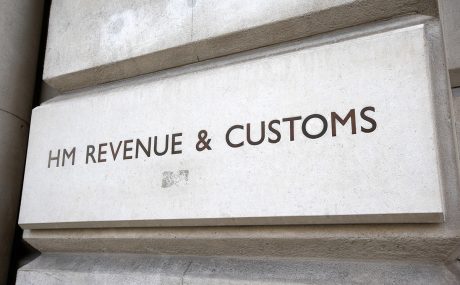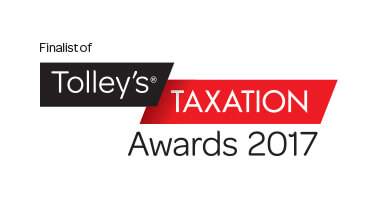Victor Cramer writes for Tax Journal about the recent case of HMRC V Taylor Clark Leisure Plc. In the case, the Supreme Court unanimously overturned the judgment of the Scottish Court of Session, finding that the representative member of a VAT group could not claim repayment of overpaid VAT on the basis of claims that were made by a company that had previously been a member of that group. But the judgment gives little guidance on the wider VAT grouping issues which have lacked clarity since their introduction.
Was Hotel California about VAT groups? Probably not. But, in HMRC v Taylor Clark Leisure Plc [2018] UKSC 35, the Supreme Court may have effectively just said that whilst you can check out of a VAT group, you can never really leave.
The Taylor Clark case has been a long running saga. It is one of at least three (or I suppose now two) significant ongoing cases about the internal machinations of VAT groups. It is the most fact-specific of all the cases, but even so I had held out hope of some wider guidance from the Supreme Court on VAT grouping issues which have lacked clarity since their introduction.
I’m sad to say that hope has been cruelly dashed.
What’s the problem?
VAT groups are supposed to give rise to an administrative simplification for groups of companies under common control. In so far as it goes, the legislation works. Supplies between members are disregarded. Supplies outside the group and VAT accounting with HMRC are all dealt with as though supplies were made by the representative member. So far, so good.
The problem is not what the legislation says: it’s what it doesn’t say. It doesn’t say anything about what happens when a group disbands, or members leave, or members join, or indeed if members disagree about a VAT treatment, or whose fault a penalty is. For the most part, that’s fine; the common control provisions make it so. Except when it isn’t. Unusual situations, like the Fleming transitional period, throw-up unusual problems.
In Taylor Clark, the problem arose because of who made the claim, and how they made it. Carlton, a former member of the Taylor Clark VAT group, made a claim for the period from 1973 to 1998. Carlton didn’t exist until 1990, when the relevant bit of the business was sold. For 1973 to 1990 Carlton claimed on the basis that the right had been assigned to them by a business transfer agreement.
That question didn’t make it to the Supreme Court, but the Court of Sessions disagreed.
In para 16 of its decision, the Supreme Court carefully ducked the need to give wider guidance by explicitly noting the limits of its jurisdiction. The only live issue before the court was the ‘claimant issue’. The Inner House of the Court of Sessions gave permission to appeal by reference to this question (I paraphrase somewhat):
‘Can the VAT group (Taylor Clark) rely on claims made in time but by another member (Carlton) of the same VAT group?’
The Supreme Court says no – and not an awful lot else. It doesn’t tell us whether the claim by Carlton was valid for Carlton, just that it isn’t valid for Taylor Clark. There might be a hint in para 32: ‘An assignee of the representative member may make a valid claim in its own right (as Carlton purported to do in this case). Alternatively, a party may make a claim to which it is not entitled.’
I’d like to know whether their lordships were staring pointedly at Carlton when they read that last sentence. Reading between the lines, Carlton’s claim may have been valid for the period from 1973 to 1990 if the business transfer agreement effectively assigned the right to claim, although the Court of Sessions found it didn’t.
One of the reasons this case is so fact specific is that Carlton did not purport to make the claim on behalf of the VAT group, or on behalf of Taylor Clark. Indeed, Taylor Clark only found out about the claim by happenstance.
There was also disagreement as to the effect of the business transfer, and that will almost always be fact specific.
Unfortunately, the fact specific nature of the case allowed the court to avoid giving any wider guidance. We are really none the wiser as to who should or could have made the claim.
What’s the solution?
Well, Fleming isn’t going to happen again, so you could choose to give your VAT grouping arrangements no further thought. That said, VAT is a European tax, and neither the government nor the oracle at Delphi have yet foretold its future shape, so there may be more uncertainty and extremity on the horizon.
One thing the Supreme Court made clear is that VATA 1994 s 43 does not deal with intra-group arrangements. Corporate groups are free to arrange these between themselves as a matter of private law.
Best practice would be to record your intra-group arrangements in writing. Document rights and obligations on members and the representative. Document what is agreed about pre-group issues, and about post-group issues. Much like pre-nup and post-nup agreements, these things are always easier when everyone is still on the same team.
Also, think about the history of your business. Fleming claims have mostly now been paid. HMRC paid out billions of pounds on claims that went back to 1973. Is someone else sitting on a large repayment that really ought to be yours? To date, these issues are being fought in the tax courts, but they aren’t really tax issues. The tax fight is about the procedure for getting the money out of HMRC. It isn’t really about who gets to keep it at all. If someone is sitting on your overpaid tax, you may be running out of time to claim it back from them.
This article first appeared in the 27 July 2018 issue of Tax Journal and can be viewed here.
You can find further information regarding our expertise, experience and team on our Tax Litigation pages.
If you require assistance from our team, please contact us or request a call back from one of our lawyers by submitting this form.
Media contact: Lydia Buckingham, Senior Marketing Executive, +44 (0) 20 7822 8134, lbuckingham@stewartslaw.com




